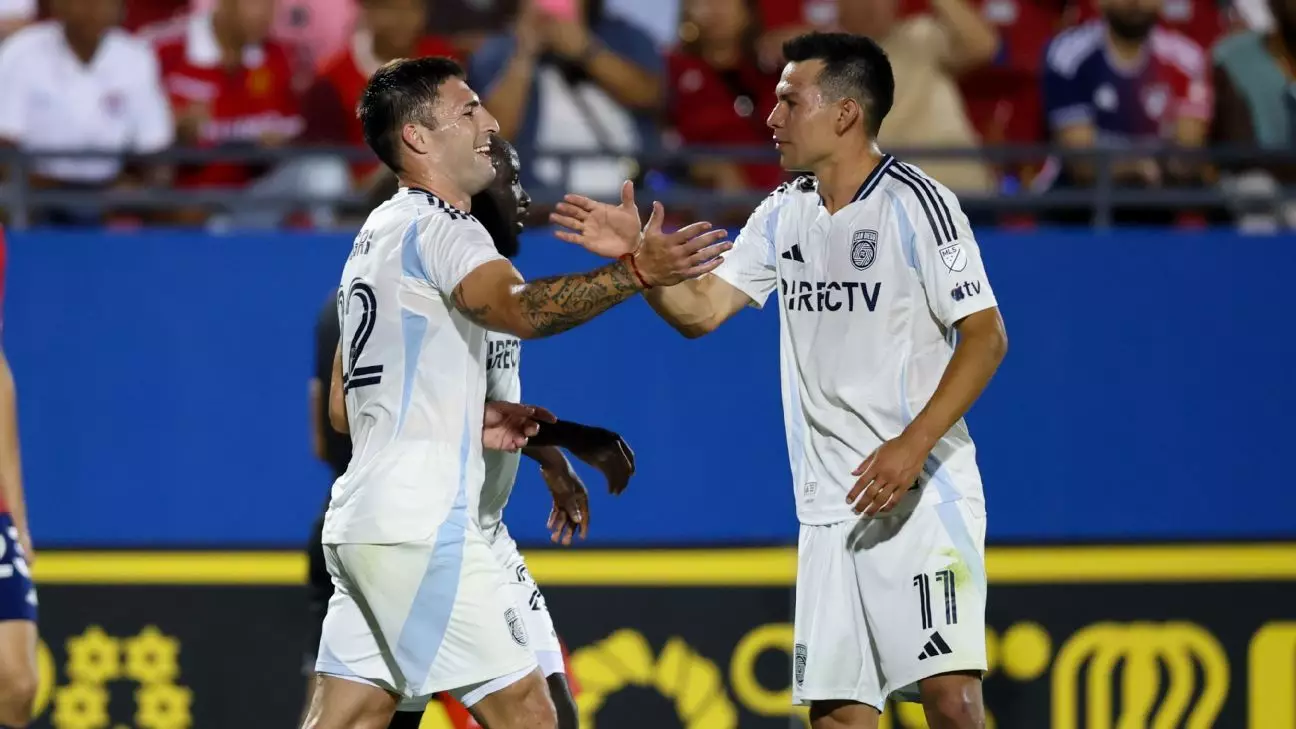The 2025 MLS season is showcasing an enthralling blend of established powerhouses and emerging threats, reshaping the competitive landscape in profound ways. The Washington Capitals, despite key absences due to international duty and injury, reaffirmed their top-tier status with a gritty victory over LAFC. Their resilience, tactical discipline, and capacity to grind out results under adversity underline what makes them the gold standard of this season so far. Similarly, Nashville SC’s continuing unbeaten run is remarkable. Under BJ Callaghan, Nashville has fashioned a balanced and ironclad approach, dictating games with a mix of defensive solidity and clinical finishing, exemplified by Sam Surridge’s penalty heroics. Their consistency isn’t fluke; it displays a team gearing up for serious playoff contention.
Meanwhile, San Diego FC is adding a new flavor of excitement to the league. Their four-game winning streak, punctuated by prolific scoring, signals a dynamic offensive unit that’s quickly becoming MLS’s real surprise package. Averaging over three goals per game during this streak, this expansion team has swiftly silenced doubters and carved out a reputation for being unpredictable and lethal in the attacking third. San Diego’s rise compels both media attention and strategic caution from all opponents.
Injury Woes and Squad Depth Testing the Loyal
The current season also lays bare the critical importance of squad depth and adaptability – factors that have severely tested several teams. Philadelphia Union’s recent loss to Columbus, a team that displayed ruthless efficiency even with a full roster, should not overshadow the underlying strength they retain when operating at full capacity. Out of position players and depleted attacking resources led to an uncharacteristic collapse, but it wouldn’t be wise to write off their campaign just yet.
Similarly, Seattle Sounders have faced defensive absences but still managed to secure a disciplined win. Alex Roldan’s step into center back alongside Jackson Ragen demonstrates Seattle’s internal resourcefulness, but the lack of fluidity hints at a deeper need for reinforcements or tactical innovation. Contrastingly, other clubs like Portland Timbers and Atlanta United are struggling to piece together momentum. Injuries to key players like Antony, Jonathan Rodríguez, and Jay Fortune have effectively robbed these squads of consistency, leaving fans frustrated and hopeful for turnaround.
Star Power and Leadership Under Scrutiny
Evander’s remarkable performances for FC Cincinnati have injected life into the side’s somewhat fluctuating fortunes. His compelling mix of technical skill and scoring instinct exemplifies how an influential player can manipulate close games and inspire teammates. Orlando’s inability to overcome Cincinnati’s masterclass, despite outshooting them significantly, exemplifies how raw chance creation doesn’t always translate to points without the finishing touch.
On the other hand, the departure of Olivier Giroud from LAFC opens an intriguing chapter. Giroud’s leadership and attacking presence were central to LAFC’s identity, and his exit leaves a significant void. The club’s proactive intent in the transfer market could redefine their tactical ambitions and competitive trajectory. Ultimately, the summer transfer window could prove transformational for several teams grappling with personnel shortfalls.
Inconsistencies and Tactical Challenges in the Middle Tier
For many mid-table teams, the 2025 season is a crucible of tactical experimentation and rebuilding. San Jose Earthquakes, under Bruce Arena’s guidance, are undergoing a considerable transition. The infusion of youth and a refreshed attacking ethos has produced moments of brilliance, such as Beau Leroux’s stunning long-range strike, yet sustainability remains elusive. Meanwhile, New York Red Bulls suffer from moments of brilliance overshadowed by disciplinary distractions—Sandro Schwarz’s altercation with a referee signal deeper frustrations within the team’s psyche.
Likewise, Chicago Fire’s rollercoaster performance—marked by blistering starts but vulnerable second halves—reflects the often erratic nature of attacking-centric teams built around high risk and reward. Their ability to net three goals early is impressive, but defensive frailties raise questions about long-term playoff resilience.
Defensive Frailties and Organizational Challenges Threaten Lower-Ranked Teams
At the other end of the spectrum, clubs like D.C. United and St. Louis City SC exemplify the struggles of poor defensive organization and inconsistent form. D.C.’s three-game losing streak, coupled with lackluster offensive output, signifies systemic problems that transcend individual talent. Meanwhile, St. Louis’ habit of passive defending invites pressure and exposes tactical naivety, areas that interim coaching staff must urgently address to lay a foundation for the future.
The LA Galaxy’s return to mediocrity raises concerns considering their historical prestige. Despite out-creating opponents like San Jose, their inability to secure victories under Greg Vanney’s stewardship suggests deeper motivational or tactical disconnects. Their solitary win so far is a glaring disconnect from expectations, and patience among supporters is likely wearing thin.
MLS’s Evolving Identity in a Competitive Global Landscape
Amidst this volatile domestic scene, the MLS’s standing on the global stage is evolving. Inter Miami’s run to the Club World Cup, albeit culminating in a humbling defeat to Paris Saint-Germain, has nevertheless elevated the league’s international profile. The stark contrast between Miami’s continental success and their MLS campaign—disturbed by scheduling conflicts and fatigue—underscores the league’s growing pains as it balances ambition and reality.
Player movements like Nico Lodeiro’s return to Nacional and newcomers proving their worth also highlight MLS’s role as a transitional league for talent development and reintegration. The strategic challenges therefore lie not only in game management but also in constructing identities capable of both domestic success and international respect.
From budding newcomers seizing momentums to the struggles of reigning contenders fighting injuries and inconsistency, the 2025 MLS season is a complex tapestry of progress and pitfalls. This evolving landscape demands adaptability, leadership, and a keen strategic vision from all clubs aiming to climb the ranks or merely stabilize in a fiercely competitive environment.

Leave a Reply